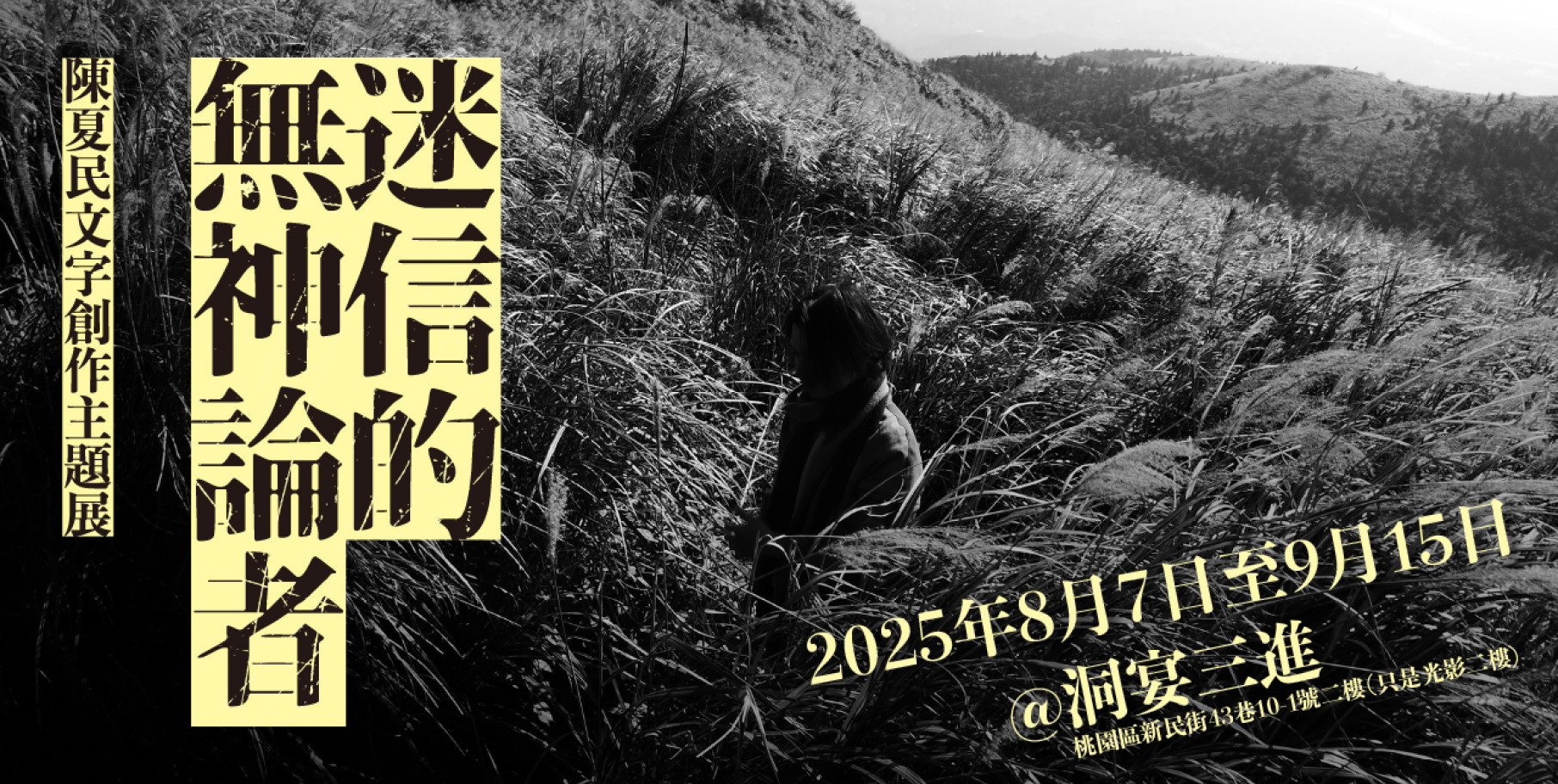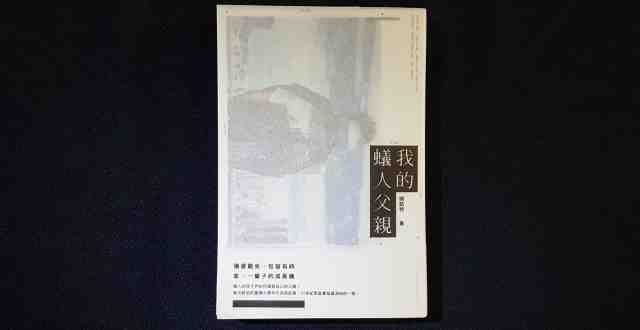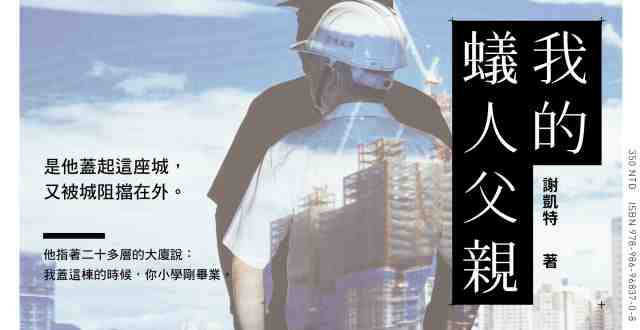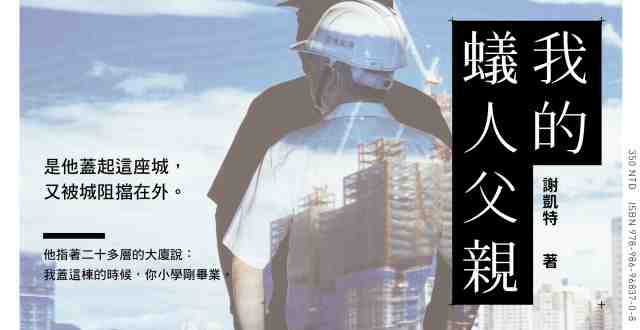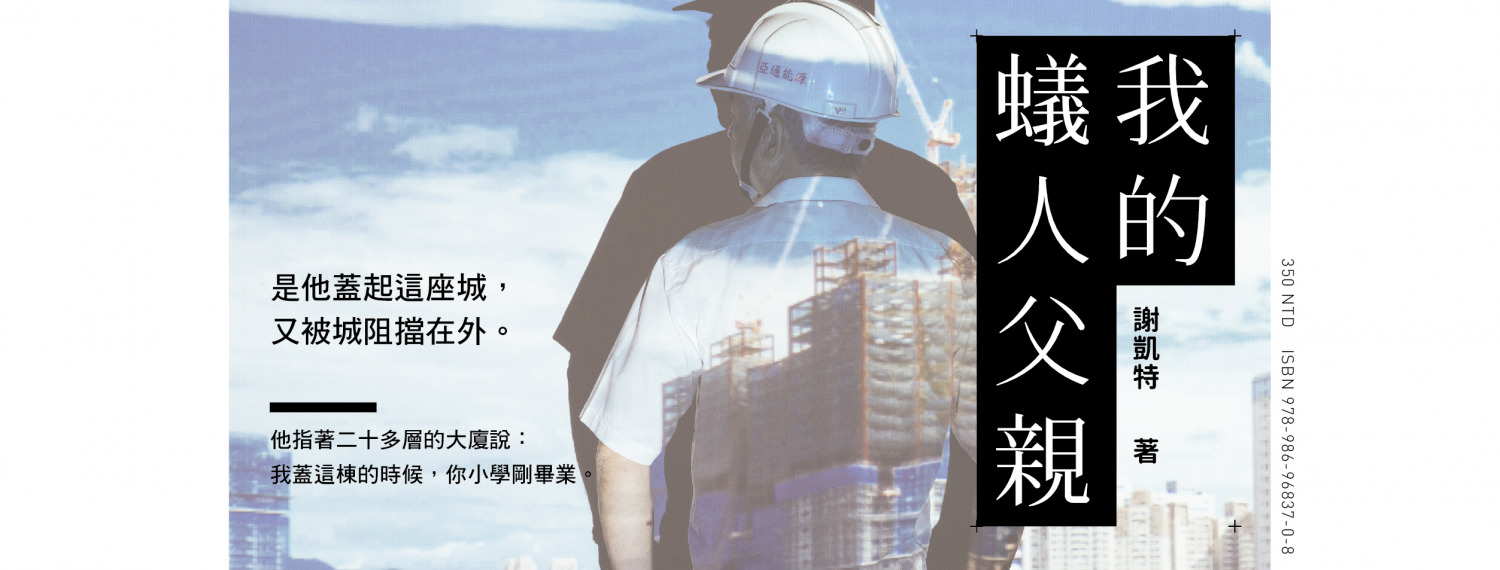
SAMPLE》His Gay Son (2/2)
When I was about to move back home for the summer before college, I asked my father to help me load up my luggage in the dormitory. Clothes, shoes, textbooks, odds and ends – my father lifted a bag of clinking bottles that clattered and overflowed with the scent of various shampoos and styling perfumes, glanced at the contents, and said nothing.
Father drove out of the university town and suddenly said, “I nailed the templates of these school buildings as well.”
These buildings, which I stepped in and out of day after day, turned out to be the world that my father had constructed out of one plate and one nail to shelter from the wind and the rain. From the edge of the city to the center, he pointed out buildings along the way, saying, “This one too, that one too.” By pointing this way, he created a cityscape in the landscape, outlining the buildings and filling them in with color, transforming the city into an infinitely expanding, gigantic metropolis within his hands.
He pointed to a twenty-story building and said, “When I built this building, you had just graduated from elementary school.”
On the day of graduation, all the graduates wore corsages to the ceremony. I thought, “I should have cried during the graduation song,” but I didn't shed a tear. But I didn't cry until I saw everyone being led away by their parents outside the auditorium. Where were the parents who had promised me to attend the ceremony? The eyes that were supposed to watch me from the second floor of the auditorium should have shone like spotlights on me. If I wasn't illuminated, there would be a void in my life that would remain buried forever.
I took the key and opened the door, changed out of my uniform, threw it into the laundry basket, and closed my room before falling into a deep sleep.
When my father came back from the construction site that day, he must have seen the corsage with the word "graduate" written on it.
Time has a way of rearranging the dynamics between parents and children in ways unseen. While my father worked, I was immersed in my studies. Yet, when he retired, I became engrossed in my work, often absent from the universe he maintained at home.
Each morning, I'd wake up, freshen up, and face the mirror to begin my grooming routine. I'd apply astringent lotion, followed by sunscreen. Sometimes, if I didn't look my best, I'd use a moisturizing spacer or an eyebrow pencil to fill in my eyebrows. After adjusting my contact lenses, I'd fix my hair with hair wax, choose a perfume, and select an outfit from my closet before heading to work.
Years ago, my mother initially thought I spent too much time getting ready. However, her words, "I thought you'd never tell me all your life," acted like a scalpel, slicing through the tense and awkward tumor between us. Since then, we've grown closer, sharing tips on self-care. She would occasionally enter my room to borrow my perfume, and sometimes she'd chat with me like a teenage girl, discussing celebrities and even asking if they were my type.
As I tapped the water, making ridiculous popping noises, my father woke up. He watered the herbs on the balcony, lit incense, boiled water, prepared sesame paste for breakfast, and then quietly walked to my door to observe me while I adjusted my eyebrows in front of the mirror, a ritual he could never fathom.
He knocked softly on the door, and as I turned to him, he said, “There's some fruit in the fridge; take it to the office.”
When I was a child, my father would wake up at 6:00 a.m. to the sound of the alarm. He'd slip into his old clothes, pick a pair of comfortable socks from the worn ones on the balcony, and sit on the steps in front of my room to put them on. His body hadn't fully awakened yet; he'd put on the socks slowly, almost as if he were resisting going to work. However, he had to put them on to avoid the possibility of a nail piercing the sole of his shoe. The sock was there not to prevent the nails but to soak up the blood from any wound.
With misty eyes, I'd watch my father's back, unable to comprehend his feelings in that moment. Now, the tables had turned; it was his turn to observe my back.
Before I left home, I went to the balcony and observed the herb plants that I had cultivated as a hobby. My retired father, knowledgeable about gardening, propagated them through cuttings, and they continued to thrive. A pot of mint multiplied into a row of mint bushes; basil and rosemary transformed from herbs into small woody trees; succulent Patchouli stood out with its lush foliage and leaves, resembling a green canopy. Each time I brought a new herb plant, I placed it on the balcony and attached a small note detailing its habits and uses: Thyme, ideal for dry environments and perfect for seafood dishes; stevia, sun-loving and a natural sugar substitute, just for you; rue, resistant to drought and insects.
The following day after leaving the note, I would find the plants relocated from inexpensive plastic pots at the flower market to larger ones. Only my father knew the art of mixing soil, gravel, and sand, and I wasn't sure where he had acquired his knowledge of propagating plants. Perhaps he had visited the library or searched the internet, but what I was certain of was that my father had read those notes, preserving them in his drawer like cherished love letters. He even meticulously wove an entire underlay of plastic rattan on our balcony, a trend at the time. With HBO playing in the background and his reading glasses perched on his nose, he skillfully knitted a giant net to support the herbs.
He was far more adept at these intricate handiworks than I had ever imagined.
A year after cultivating these plants, mosquitoes ceased to invade our home. One evening, my mother relayed my father's words: "I don't even need an electric mosquito swatter anymore."
"You and your father have grown closer, even without many words," Mother said with a knowing smile.
At times, I felt more akin to my father's daughter. Upon entering my room, I would find the pillows and quilts rearranged by my father, clothes neatly hung on hangers, and the trash can emptied of all its contents, once filled with discarded eyeglasses boxes, skincare product packaging, and tissue papers stained with smudged eyebrow pencil. He no longer commented on the scents of the room, no longer warned me to be cautious of smelling too good. Instead, he quietly transformed a space he didn't quite comprehend into a clean and orderly universe.
Father remained silent.
He had ventured from the heart of the city to its outskirts, returned to the city, and ultimately back home. It felt as if he had always been a distant presence in my life, only to reappear now. Though we had forgotten how to verbally converse, we connected through the silent threads we left for each other, exchanging information and confirming one another's existence.
(to be continued. )

